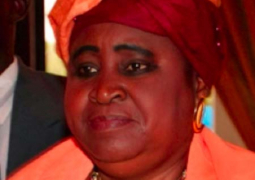No sooner had the International Criminal Court (ICC) indicted six Kenyans suspected of being behind the violence, after the disputed 2007 elections, than some Kenyan ministers cried out against the action, some jetting around the world trying to drum up international support for the trials to be deferred, while others promised that justice will be pursued locally.
While many believe that the ICC is on a witchhunt of African leaders, it is also our belief that this is one of the most ridiculous objections we have ever heard, considering the fact that it is African states themselves who are signatories to the Rome Statute establishing the ICC.
The six prominent Kenyans, including Deputy Prime Minister Uhuru Kenyatta, former Higher Education Minister William Ruto, head of the Civil Service Francis Muthaura and former police chief Mohammed Hussein Ali, are accused of murder, deportations and persecutions by ICC chief prosecutor Luis Moreno-Ocampo.
As things stand, they are the most notorious for the violence that erupted in
The disputed post-election violence in
Like others already on trial for committing atrocities, these people should go to the ICC to clear themselves. Why the fear, if they know that their hands are clean?
What is happening to these people and other African leaders should not be seen as an anti-African leader’s campaign. Even if it is, then these leaders have given the ICC prosecutor cause for them to have them on trial.
If they had practiced good governance, with respect for human rights, transparency and accountability, then they would not have been going through this ordeal.
This then should serve as a lesson to other incumbent leaders that they cannot misgovern their nations, plunge their people into civil wars and degradation, and hope to get away with it.
It is our contention that what is happening to some of these people is a positive development, in the sense that the few remaining dictators on the continent will have to learn; otherwise, the long arm of justice will slowly, but surely, catch up with them someday.
“Injustice anywhere is a threat to justice everywhere.”
Martin Luther King
Read Other Articles In Article (Archive)
ChildFund, KNF pledge more support for child, youth development
Nov 27, 2014, 10:24 AM


